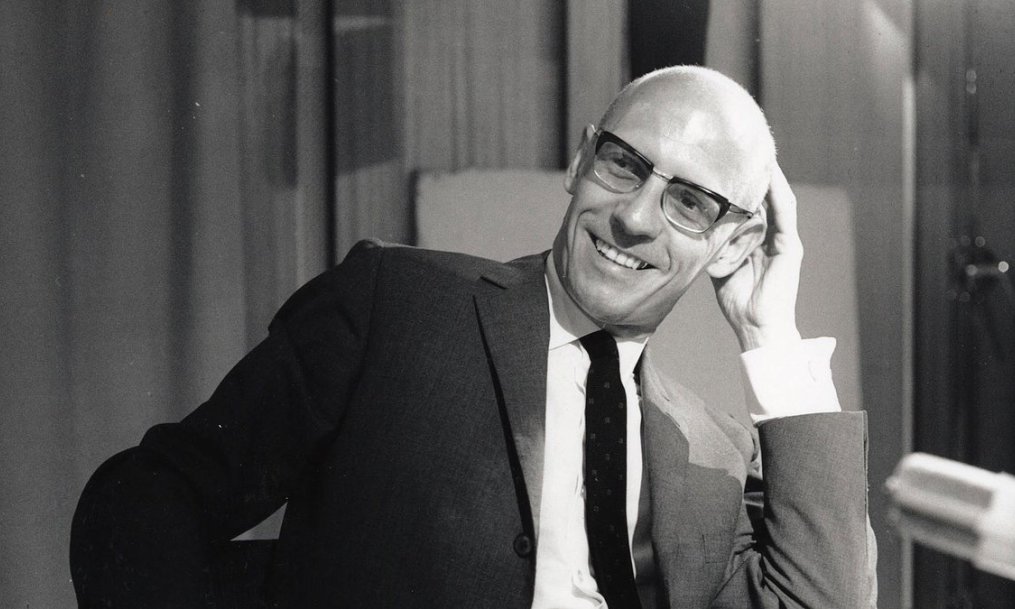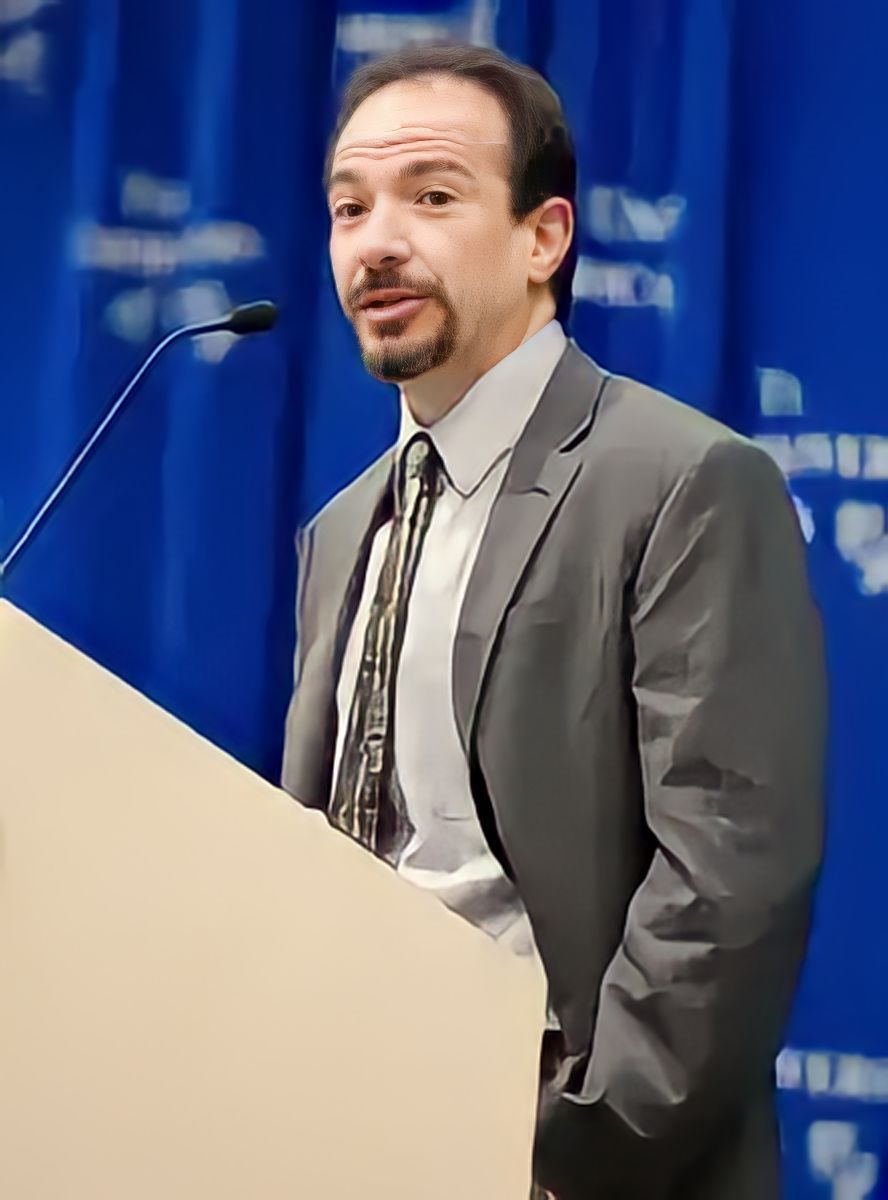Education
Resisting the Postmodern Ascendancy: An Interview with Ernest Suarez
The ALSCW started because of the ascendancy of postmodernist theory, but not because of the politics associated with postmodern theory.

The Association of Literary Scholars, Critics, and Writers (ALSCW) is an academic association which meets at its annual conference (until now in the United States) to discuss literary matters. It is attended by a broad range of literary types: university professors, novelists, and poets, not to mention school teachers. In addition to the excellent quality of the academic endeavors conducted at its conferences, what makes the association noteworthy is that it has an appealing contrarian quality. It was set up to counter what its founders saw as a negative trend in the study of literature, which emerged over the course of the 1970s and ‘80s. The Association describes its own history as follows:
In 1994, a group of professors of literature, critics, and imaginative writers, tired of lamenting the overly politicized debate about literary study in the academy, joined together to create a different kind of organization, one aimed at combating this intellectual partisanship. The founders represented many unique perspectives and literatures from ancient to modern, but shared a common exasperation with the narrow theoretical and sociological discourse that seemed to have gained ascendancy in the United States, Canada, and the United Kingdom in the eighties and nineties. We wanted a renewed and enlarged field of study, more freedom of thought and expression, and more lively exchange between scholars and literary artists.
We represented no political agenda. Our members ranged across a broad ideological (or non-ideological) spectrum. What held us together was the desire to create a forum where lovers of the word could carry on spirited literary debate and examine the arts of writing.
I attended the association’s conference this year and interviewed its president, Professor Ernest Suarez of the Catholic University of America (Washington D.C.). Approaching the interview, I had a small number of points of reference in mind which I thought explained in part of the emergence of the ALSCW. Each point entails the putative weakening of political diversity in English departments and an emerging hegemony of the Left in that domain.

First, the rise of “Theory”, so much of which has an unequivocally left-wing agenda. (In his influential Literary Theory (1983), Terry Eagleton outlined how virtually all the modish literary theories of the day could safely be adopted by “radical critics”.)
Second, the perception that the professoriate in English departments across North America is mostly “on the Left.” (A chapter in Todd Gitlin’s The Twilight of Common Dreams (1995), dealing with the emergence of a dominant academic Left in literary studies in the States, bears the title “Marching on the English Department while the Right took the White House.”)
And third, the idea that the association itself had come into existence owing to the feeling that the big beast of American literary studies associations, The Modern Languages Association (MLA), had come to be identified with a practice that was politically one-sided.
I began the interview with a question referencing these points.
Brian Russell Graham: Firstly, I’d like to ask you about the origins of the ALSCW. Some people say it was originally an anti-MLA organization, which then became more “para-” than “anti-”. It is also spoken of as an association which is against the politicization of the humanities. And others go so far as to describe it as an anti-theory association.

Ernest Suarez: The ALSCW started because of the ascendancy of postmodernist theory, but not because of the politics associated with postmodern theory. The issue was that literary study had become so overly politicized that people were losing sight of why literature is valuable. Literature and the arts often contain a political dimension, and that’s an important part of the picture, but it’s not the entire picture. We read great writers, from Homer to Toni Morrison, because their work helps us think about what it means to be human. Great literature has been written by people from different times, from different backgrounds, and encompasses a range of perspectives. Writers approach what it means to be human in a variety of ways. That dynamic is what makes literary study rich and textured. Any method—whether it’s postmodern theories or approaches that use literature to affirm the greatness of western civilization—that doesn’t take this into account is lacking. When literature is turned into a sociological abstraction, the individual human element is lost. A sense of craft and a sense of literature as an art form are lost. Emotional subtleties are lost.
BRG: One of the things which seems germane to me is the distinction between poetics and “postmodernist theory” if that’s what we are calling it. Presumably, poetics is the sort of approach which treats literature as works of art, whereas a lot of theory doesn’t.
ES: A work of art is going to contain assumptions pertaining to its time and place, for good or ill, but a critic should begin by addressing the work itself. How is it structured? What are the techniques and devices is a writer using? What is the work attempting to accomplish? The critic should consider these things and other matters, and proceed from there. If a critic hasn’t tried to understand a work on its own terms and then situated it in its time and place, the critic is likely to be reacting to a figment of his or her imagination.
BRG: If we can backtrack to the origins, if I have understood you correctly, you’ve said that a number of postmodernist theories have laudable social goals, but they don’t treat literature as works of art. Was the Association also a reaction to the growing sense in the eighties and nineties that English departments were becoming rather homogeneous in terms of the political attitude of most professors in those departments?
ES: When you have departments or associations encompassing thousands of people, there will be a variety of points of view on almost any matter. There were a variety of political opinions in English departments during the eighties and nineties, just as there are today. But postmodernist theory tended to be a very blunt instrument, which resulted in the same general political points being repeated over and over. That phenomenon provided the impression of homogeneity. The irony is that imaginative literature often deals with political and other issues in a more nuanced and textured way. Artists seldom experiment with aesthetic forms just for the sake of it. As perceptions of the world change, great artists create new techniques in order to engage new ways of conceiving reality.
BRG: So if we had been at a conference at the MLA in the late eighties, do you think we would have been aware of an array of political opinion?
ES: I earned my PhD in 1989 and attended many such conferences. There were lots of intelligent people and you encountered an array of political opinions if you spoke with people individually. The people attending conferences weren’t robots. But analyses of literary works were saturated with contemporary politics. The same political points were emphasized time and again. It was dull and repetitive.
BRG: Do you mean the same political goals?
ES: It’s dangerous to oversimplify, but most postmodern theories center on issues pertaining to race, gender, and class. Those are important issues. Almost any powerful work of literature deals with them in one way or another. I think that postmodern theory addresses these things as political phenomena, and foregrounds them over every other aspect of the work. Literature becomes part of an abstract political narrative, and many of the qualities which make literature valuable tend to get lost. Again, I don’t feel that the politics associated with postmodern theory are the problem. The problem is that postmodern theory isn’t a very interesting or effective way of dealing with literature. Too much is lost.
BRG: When you explain it in that way, it does sound very much like the way in which the New Left embraced identity politics and how that viewpoint came to dominate literary studies as well.
ES: I don’t think the issue has to do with being New Left, liberal, conservative, or whatever. The problem stems from people using literature in the service of an idea. Critics who use literature to promote a certain political posture—be it liberal or conservative—are being reductive. I’ve certainly read many articles in The New Criterion that use literature to promote a conservative worldview. That’s just as egregious as using literature in the service of identity politics. Both approaches are using literature in service of an idea, rather than addressing complex works of art more fully.
* * *
In the second half of the interview, I wanted to deal with the importance to the ALSCW of one particular approach to literature: the so-called “New Criticism”. This was a school of criticism that emerged in the United States in the thirties through figures such as I. A. Richards and William Empson, and held sway over literary studies for several decades. It is associated with critical efforts which, through “close reading,” foreground the “unity” of literary works, paying special attention to their irony, ambiguity etc. Its goal was to encourage a culture of subtle and insightful interpretations of literary works. I wanted to ask Suarez about the extent to which this approach is one favoured by ALSCW members in their work. Additionally, I wanted to ask him about the putative religious and political connotations of the approach.
BRG: Is the New Criticism still central?
ES: I think close reading is the basis of literary study. Close reading means reading with care and precision. When people speak of the New Criticism they often turn it into a monolith. The characterization of many New Critics is that they ignored history, politics, and anything external to the literary work. If you read the work of most of the major New Critics, that’s not true. Take Robert Penn Warren, for example. In a typical essay he brings in biography, history, the author’s social climate, the author’s dominant themes, what’s going on in the literary world at that time, and then plunges into a close reading. He reads the work on its own terms, and then emerges out of the close reading, and considers it within the context of the writer’s career, literary history, and culture. John Crowe Ransom’s The New Criticism doesn’t concern what people commonly associate with New Criticism. It takes the writings of several critics who were writing at the same time as Ransom and assesses their practices. A problem is that people tend to speak of the New Critics without having read their work. I think the type of close reading associated with the New Criticism can provide a great sense of craft.

Many of the major New Critics were creative writers as well as students of literature. A great deal is lost when the assumptions of the creative writer and the assumptions of the critic diverge too widely. It’s why we call ourselves the Association of Literary Critics, Scholars, and Writers. I would like to see more criticism by practicing artists; it tends to help remind us that literature and art are created by human beings, and contain all the ironies and paradoxes associated with diverse people at different times and in different places. I also think there’s excellent work being done by narrative theorists who understand the nuances of literary form and its relationship to human expression. Brian Richardson, who teaches at the University of Maryland, is a terrific example of this sort of critic.
BRG: The obvious question relates to the ideological underpinnings of this kind of criticism. Does this manner of close reading transcend its original contexts, which typically get identified as Catholic, conservative, and southern? Can it become a universal approach?
ES: You are speaking of a particular branch of New Criticism: the writers who are often associated with Vanderbilt University [in Nashville] and later with Louisiana State University. But that’s become a monolith, too. Allen Tate was a Catholic; Cleanth Brooks was not. Robert Penn Warren was not. Tate was conservative; Robert Penn Warren was not. All these things break apart when you consider the individual critic or writer. They were all concerned with history and culture, and not just rubbing their noses in the text. I think a more stereotypical form of the New Criticism is that of Wimsatt and Beardsley, who taught at Yale, and who were concerned with the intentional fallacy and other concepts.
It’s important to note that the New Criticism is not a theory; it’s a tool for the analysis of literature. The southern branch of the New Criticism largely emerged out of Brooks and Warren’s teaching at LSU. After the university was opened to a larger swathe of the population, Brooks and Warren reconsidered how literature should be taught. Their courses were filled with first generation college students who didn’t have a classical education, so Brooks and Warren developed pedagogical tools for teaching the fundamentals of literary study: setting, symbol, point-of-view, tone, and so on. Understanding Poetry, Understanding Fiction and their other textbooks grew out of the notes they used to teach class, and became pedagogical tools for several generations of teachers.
BRG: You think that the members of the Association are influenced by New Criticism?
ES: Not by the New Criticism per se. These labels are not particularly useful. They conjure stereotypes, unless people are well informed, and then they aren’t needed. I would use the term “close reading.” Attention to craft. You start with close scrutiny of the work itself. Once the critic has established a reading, the critic is free to consider where the work fits into our literary and cultural history. I think that’s the general approach most members of the ALSCW embrace, but it varies according to the work that’s being addressed and to what the critic is attempting to accomplish.
BRG: I can see that a paradox inheres in discussions about politicization. Organizations take a stance against the politicization of culture, but paradoxically, the taking of that stance can be political, fitting in with the overarching political attitude of the organization. Think of the attitude of the Wall Street Journal (a dyed-in-the-wool conservative paper) to the “politicization of everything” (a phrase in one of their headlines). Could the ALSCW get caught up in that paradox? Trying to avoid political temptations but discovering that you are being political anyway.
ES: I understand what you are saying, but there should be room for political discussion. I think a critic needs to start with the work of art. After that’s done—to the extent that it’s possible to establish a particular reading for a particular work—there’s room for all kinds of discussion, political or otherwise. But the discussion should be guided by the work in its entirety, and not by select passages or elements that are used to confirm what the critic already believes.






